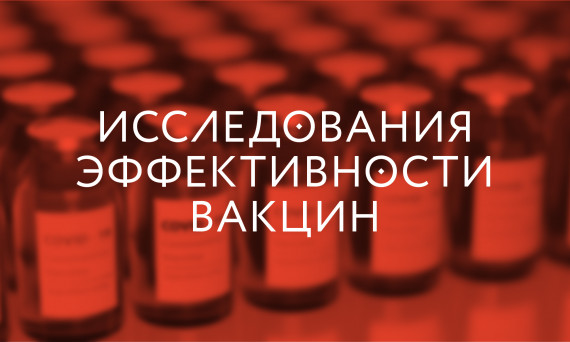Researchers from the European University at St. Petersburg and the Medical Institute named after Berezin Sergey (MIBS) calculated the effectiveness of Russian vaccines against symptomatic coronavirus infection during an outbreak caused by the delta variant. "Sputnik V" protects against the delta variant. Тhe effectiveness of the vaccine was 58%. In reality, the efficacy is even higher, since this calculated figure is influenced by the number of people who recovered but were not included in the data.
The effectiveness of CoviVac is one and a half times lower (38%), and the efficiency of EpiVacCorona is even lower. The work was published as a preprint.
A "case-control" study was conducted in October 2021 in St. Petersburg. The “cases” consisted of 1,198 people with symptoms and confirmed coronavirus infection who were referred for CT scans at two outpatient centers at the Medical Institute named after Berezin Sergey (MIBS). MIBS doctors collected data on the health status of the patients, their vaccination status and the type of vaccination, and also clarified whether the person had had COVID-19 in the past, whether they had received a positive PCR result at least two months or more before being admitted to MIBS. The researchers collected data from people sent to MIBS from 6 to 14 October.
The control group numbered 2747 people and included participants in another study, a study on the prevalence of antibodies to coronavirus (serosurvey) in St. Petersburg, which European University scientists and colleagues conducted at the same time. The serosurvey took place in two stages. During the first stage, participants were randomly called and asked questions, including about vaccination and previous illness. In the second stage of the study, they were invited to be tested for antibodies.
Mikhail Cherkashin, co-author of the study, deputy chief physician for the medical department of MIBS:
At the time of the study, four vaccines were available in St. Petersburg - Sputnik V, Sputnik Light, EpiVacCorona and CoviVac. 1,175 people completed the course of vaccination. We included in this group all those who had received a second dose of vaccine in September or earlier. Participants vaccinated with a single dose of Sputnik V were included in the group who received Sputnik Light. Twenty-eight people completed the course of vaccination with EpiVacCorona and 104 with CoviVac.
The researchers assessed how vaccination protected against the symptomatic course of coronavirus infection and lung damage. Sputnik V was 58% effective; Sputnik Lite was 50% effective; CoviVac was 38% effective, and EpiVacCorona was -40% effective. The authors took into account gender, age, and previous disease history. Correction for previous disease is necessary, because without it, the real effectiveness of vaccines is underestimated.
Anton Barchuk, co-author of the study, Associate Professor of Population Medical Research at Polymetal JSC and Director of the Institute for Interdisciplinary Medical Research at the European University at St. Petersburg:
Negative effectiveness means a higher risk of getting sick compared to unvaccinated people, among whom there are many who have previously been infected and recovered. All those who had had the coronavirus infection could not be counted because many were infected without a positive PCR test. The vaccine shows negative effectiveness since the “cases” were compared with people among whom many had previously been infected, and were, thus, immune.
Artemy Okhotin, co-author of the study, doctor at the Tarusa hospital:
In addition to confirming the effectiveness of the Sputnik V vaccine against the delta strain, the negative effectiveness of the EpiVacCorona vaccine is interesting from a methodological point of view. Assuming that negative efficacy is a valuation inaccuracy, one can speculate how much the efficacy of the other vaccines is underestimated. If we consider the effectiveness of EpiVacCorona to be zero (or positive), and not negative, then the effectiveness of Sputnik V grows to about 70% (or higher).
The researchers found only two cases of re-infection. It is likely that the risk of reinfection with alpha, beta, and delta variants and the likelihood of severe disease is low. But with the emergence of the omicron variant, the risk of reinfection may be higher.
This is the second independent case-control study evaluating the effectiveness of Russian vaccines against coronavirus infection. In August 2021, researchers found that vaccination protects against severe COVID-19 and lung damage. People vaccinated with Sputnik V need hospitalization less often if they become infected with SARS-CoV-2.
Contact:
Alexandra Vasilyeva,
Research Spokesperson, Institute for Interdisciplinary Medical Research (IMMI)
Тел.: +7 (999) 525-72-97
e-mail: alvasilieva@eu.spb.ru
